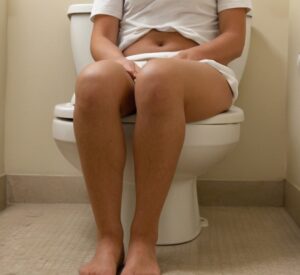
Urethritis is an inflammation of the urethra, the tube that carries urine from the bladder to the outside of the body. It is commonly characterized by painful urination and, in some cases, discharge from the urethra. While often self-limiting, prompt evaluation and treatment are essential to prevent complications and transmission.
Causes of Urethritis
Urethritis is typically caused by an infection, most commonly sexually transmitted infections (STIs) such as chlamydia, gonorrhea, and mycoplasma genitalium. Viruses, such as herpes simplex virus (HSV), can also cause urethritis. Non-infectious causes include injury to the urethra, chemical irritants, and allergic reactions. In some cases, the cause remains unknown, referred to as non-specific urethritis.
Symptoms of Urethritis
The symptoms of urethritis can vary in severity and may include:
- Pain or burning sensation during urination (dysuria).
- Feeling of incomplete bladder emptying.
- Frequent or urgent need to urinate.
- Itching or irritation at the urethral opening.
- Discharge from the urethra, which may be clear, cloudy, or purulent.
- Pain during sexual intercourse.
- Pain or discomfort in the lower abdomen or pelvic area.
Diagnosis of Urethritis
Diagnosing urethritis involves a thorough medical history, physical examination, and laboratory tests. Key diagnostic steps include:
- Urine sample analysis to detect infection and inflammation.
- Swab of the urethra to identify specific pathogens, such as chlamydia or gonorrhea.
- Testing for other STIs, such as HIV and syphilis.
- In some cases, cystoscopy or ultrasound may be performed to evaluate the urethra and bladder.
Treatment of Urethritis
Treatment for urethritis depends on the underlying cause.
Infectious Urethritis:
Antibiotics are the mainstay of treatment for bacterial infections. The specific antibiotic prescribed depends on the identified pathogen. Antiviral medications may be used for viral infections, such as HSV.
Non-Specific Urethritis:
If no specific cause is identified, treatment may involve antibiotics to cover common bacterial pathogens. Pain relievers and anti-inflammatory medications can help alleviate symptoms.
Self-Care Measures:
In addition to medical treatment, several self-care measures can promote healing and prevent recurrence:
- Practice good hygiene, including gentle cleansing of the genital area with mild soap and water.
- Avoid sexual activity until the infection is cleared.
- Use condoms to prevent STIs.
- Avoid irritants, such as harsh soaps, douches, and spermicides.
- Drink plenty of fluids to flush out the urinary tract.
Prevention of Urethritis
Preventing urethritis involves reducing the risk of infection and irritation. Key strategies include:
- Avoiding sexual contact with individuals who have symptoms of an STI.
- Practicing safe sex by using condoms consistently and correctly.
- Getting tested regularly for STIs, especially if you have multiple partners.
- Maintaining good hygiene.
- Avoiding irritants, such as harsh soaps and douches.
Takeaway
Urethritis is a common condition characterized by inflammation of the urethra. Prompt diagnosis and treatment are essential to prevent complications and transmission. Individuals experiencing symptoms of urethritis should seek medical evaluation and follow recommended treatment guidelines.
